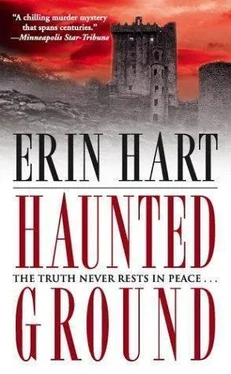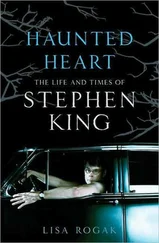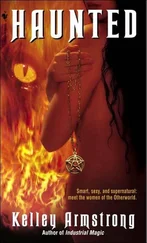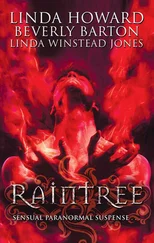It’s easy to get caught up in the methodology, in all the highly technical aspects of what we do, his colleague and mentor Gabriel McCrossan had once told him. But that’s just our way of seeking knowledge, it’s not the essence of what we’re about. Keep in mind that our main concern is people—we learn about ourselves by studying those who have come before.
This would be his first trip into the field without Gabriel. Only three weeks ago, he had dropped by the office and found the old man dead at his desk. The fountain pen had tumbled from his right hand, and a large blot of ink had formed where it had last made contact with the paper. Cormac knew the old man would have shared his excitement about this new find.
Gabriel had always maintained that all scientific inquiry, whether it was undertaken through the lens of a microscope or the lens of a telescope, consisted of peering at the vast universe through one tiny peephole. He had often spoken of their archaeological work as seeing through a glass darkly, trying to reconstruct the past with sparse and imperfect evidence. Gabriel had relished the moments when something turned up. Another piece of the puzzle, my boy, he’d say, rubbing his hands together in anticipation. Another little piece of the puzzle.
Cormac had just crossed over the Roscommon border at Athlone, noting the gradually shrinking proportions of the fields, the increasing narrowness of the roads, the first signs that he was well and truly in the West, when he remembered the potentially awkward situation that awaited him at the site. Gabriel had first introduced him to Nora Gavin. Although Nora was American, her parents were from Ireland, and she and the old man had some sort of prior connection; he’d been at university with her father or something. It was hard to tell how old she was; probably somewhere in her late thirties. From the way Gabriel had kept mentioning Nora, and insisting that Cormac must meet her, he also guessed that she was unattached. She seemed intelligent, and pleasant enough on the few occasions when they’d met, but nothing had come of Gabriel’s prodding. Then one evening about six months ago, he and Nora had both been among a small group of people invited to supper at Gabriel’s house, and the old man had pressed him into giving her a lift home. Cormac remembered how annoyed he’d felt, letting himself be maneuvered into a corner. Nora lived in one of those modern blocks of flats along the Grand Canal, not far from his own place. He’d hardly spoken a word to her on the drive, and hadn’t even waited to see whether she got inside safely. As he pulled away, he glanced into the rearview mirror to find her at the curbside looking after him. He hadn’t seen her since. Surely she’d been at Gabriel’s memorial, but his memory of that day was too clouded by grief to be trusted.
At Ballinasloe he turned off the main road and headed south toward Portumna, the town at the head of Lough Derg. To the west, the ground sloped gradually upward to the feathery pine forests that covered the Slieve Aughty Mountains; to the east lay what remained of the ancient body of water that once covered the whole center of Ireland. Farther down the lakeshore were the holiday resort towns of Mountshannon and Scarriff, but in this remote corner of Galway, there was only farmland and mountain overlooking small, hidden lakes and treeless stretches of bog. As he approached the lakeshore, he began to see homemade signs posted along the road. At first he thought they were To Let notices or adverts of some kind, but as he drew near the first one he read, “No Bog Licence”; a bit farther on was one that said, “No Bog Evictions”; and finally:
YEAR 1798 REBELLION
YEAR 1999 TURF-CUTTING PROHIBITED
YEAR 200? ? ? ?
He wasn’t surprised to see such sentiments expressed along the roadside. There had long been controversy about Ireland’s use of peat, since it was an unrenewable resource. Irish bogs also provided a wildlife habitat unique in all of Europe, and there was increasing pressure from the EU to consider the environmental consequences of turf-cutting.
Cormac arrived at the site at a quarter past two. The sun was still fairly high overhead, barely veiled by a few wispy clouds. Here and there the bog’s heathery surface was scarred with deep black gashes. There were no ditches here, no fencing, no visible evidence of property boundaries on this raised blanket of turf. And yet he’d wager each of the locals knew precisely where his own turf allotment ended and his neighbor’s began. A random scattering of spiky, pale green furze bushes, not yet covered in bright saffron blossoms, stood close to the road. Beyond them, a patch of bog cotton shivered in the breeze. And beyond that, about fifty yards away, Cormac could see a small group of people, including Nora Gavin and a uniformed Garda officer. He felt something like dread as he stepped into his waterproof trousers, then carefully removed his shoes and plunged each stocking foot into a sturdy wellington. He stood for a moment at the roadside, squinting as he surveyed the horizon for some fixed point, a church steeple or radio tower, anything that would help him map out exactly where the body had been discovered; nothing appeared. A short distance down the road, the door of an ancient-looking Toyota opened, and a squarish man in a brown leather jacket emerged. A slight protrusion of the man’s midsection suggested a fondness for porter, and the sunlight glinted off his silvery-white hair. He seemed to have been waiting. Cormac lifted his jacket and site kit out of the passenger seat and extended his hand as the man drew near.
“Cormac Maguire. The National Museum asked me to oversee the excavation.”
“Ah, the archaeologist,” said the man, taking the hand Cormac proffered and giving it a firm squeeze. Now that Cormac was closer, he could see the man’s fresh pink countenance belied his hoary head; he was probably no more than forty-five.
“Detective Garrett Devaney,” the man said. “Dr. Gavin will be glad to see you. Said she had to wait for you to begin.” Devaney spoke out of the corner of his mouth, as if every word were an aside, and his pale blue eyes darted slantwise under their lids, giving him a perpetual look of wry amusement. Then the policeman tipped his head across the bog, and they turned to make their way to the gathering, treading carefully over the soggy ground, with Devaney leading the way and talking backward at Cormac. “You probably know most of it, local farmer cutting turf. According to him, nobody’s so much as opened a drain on that section for a hundred years or more. Malachy Drummond—you know Drummond, the pathologist?—apparently agreed. He was in and out of it in about ten minutes this morning.”
“If you don’t mind me asking, what’s a detective still doing here, all the way from…”
“Loughrea.”
“…from Loughrea, if this isn’t reckoned to be one of your unsolved murders?”
“Ah well, we didn’t know that for certain, now did we? There was some notion it might be a woman gone missing from nearby. I’m just here to clear up any questions on that score. And I live just down the road.”
“Is there much disturbance around the body?”
“It’s fairly clean,” Devaney said. “Once he realized what he was onto, the lad with the spade set it down in a bit of a hurry.”
Nora Gavin approached as they drew nearer the cutaway. She was taller than Cormac remembered, and dressed as he was, in jeans and wellingtons, but no waterproofs. Her large blue eyes, dark hair, and milk-white skin exemplified the paradoxical features so common in Ireland. Occasionally some word or inflection would hint at her Irish origins, but for the most part, Nora’s accent betrayed the years she’d spent in the broad middle of America. Her hair was different, perhaps shorter than the last time they’d met, and drew Cormac’s attention to the graceful line of her neck, something he’d not noticed before. In his recent fit of self-recrimination for the way he’d behaved toward Nora, Cormac had quite forgotten how thoroughly attractive she was, and felt vast relief that the excitement of the occasion seemed to have removed any awkwardness about their last encounter.
Читать дальше











